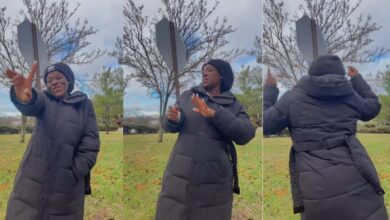Government in DRC bans how family members transport dead bodies from the Mortuary (photos)

In most of eastern DRC, motorcycles transport human corpses to and from mortuaries. It’s amazing that no other mode of transport is used. Hired commercial motorcycle riders transport dead bodies to the morgue. They are hired by the deceased’s relatives to do work for a fee.
In African cultures, respect for the deceased and the bereaved demands that the body is treated with dignity and respect.
DRC’s transport infrastructure
Ground transportation in the DRC has always been problematic (DRC). The Congo Basin’s terrain and climate make road and rail construction difficult, and the distances between cities are vast.
Transport infrastructure has yet to recover from the damage caused by civil ears. Militias burned or seized many cars, especially in the north and east. Away from major cities, private and commercial road transportation is nonexistent. The UN, NGOs, the DRC government, and a few larger companies, like mining and energy, operate the few vehicles used outside of the cities.
However, for the average person, especially in rural areas, cycling, walking, or canoeing are the only options.
Political unrest, lack of infrastructure, and centuries of commercial and colonial exploitation have stunted the DRC’s growth. In 2019, the Human Development Index ranked the DRC 175th out of 189 countries. By 2021, conflict in the DRC’s central and eastern regions had forced over one million Congolese to flee. Two million children are at risk of hunger, and the conflict has displaced 4.5 million people.
The COVID-19 epidemic has had negative social and economic consequences, as well as disruptions in health and other basic services.
COVID-19 is spread by inhaling contaminated air droplets and viruses. Transmission occurs when contaminated fluids or surfaces are splashed or sprayed into the eyes, nose, or mouth.
From 2018 to 2020, the Ebola virus outbreak in eastern DRC killed 3,470 people. The outbreak was the largest in DRC history and the second-largest in history, after the West African pandemic of 2013–2016.
The Ebola virus is extremely contagious and can be found in breast milk, saliva, feces, blood, and sperm.
A complex system designed to prevent the spread of Ebola, coronavirus, and other fatal infections has replaced the use of motorcycles by health officials. Due to the pandemic’s strict management rules, burial rites and public prayers have been discontinued.
The government educates the public on health issues like COVID and Ebola. Because burial customs involve kissing and touching bodies, the WHO and government label funerals and transportation as “super-spreading activities.”
Pictures
[ads2]










